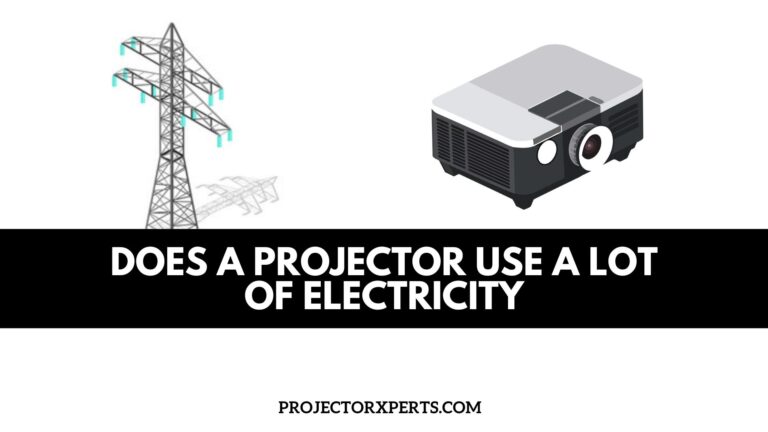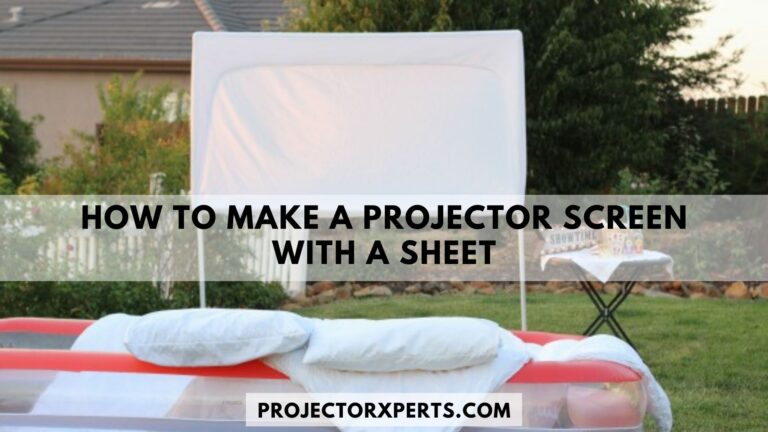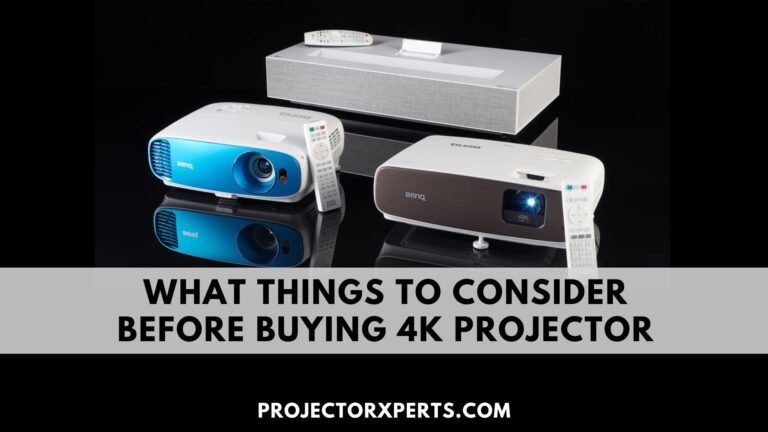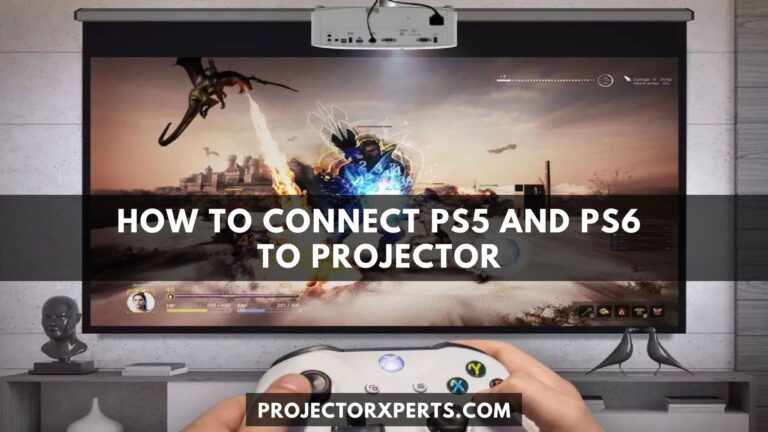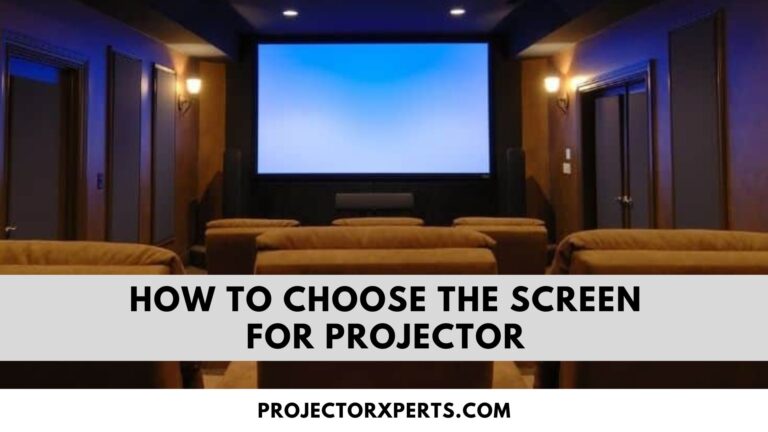Do You Need a 4K Screen for a 4K Projector?
In the world of theater at home and high-quality visual experiences, the terms “4K screen” and “4K projector” are often thrown around. But what do they mean? A 4K screen refers to a display screen with a resolution of 3840 x 2160 pixels, delivering stunning image clarity. On the other hand, a 4K projector is designed to project images or videos with the same impressive resolution onto a screen or surface. Both of these technologies promise exceptional picture quality, making them desirable choices for movie enthusiasts, gamers, and anyone who values immersive visuals.
Here lies the heart of the dilemma: Should you invest in a dedicated 4K screen for your 4K projector setup? The answer isn’t a straightforward “yes” or “no.” It depends on several factors, including your preferences, room environment, budget, and long-term vision for your home theater. In this guide, we’ll explore the advantages and disadvantages of using a 4K screen, along with alternative options to help you make an informed decision.
Advantages of Using a 4K Screen
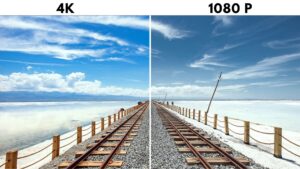
Enhanced Image Quality
One of the most compelling reasons to pair a 4K projector with a 4K screen is the significantly enhanced image quality. With a dedicated 4K screen, you’ll experience crystal-clear visuals, fine details, and vibrant colors that make your favorite movies and games come to life.
Better Color Accuracy
4K screens are engineered to deliver precise color reproduction. This means you’ll see colors as they were intended by filmmakers and game developers. The result is a more authentic and immersive viewing experience.
Improved Immersion
A 4K screen can elevate the level of immersion in your home theater. Whether you’re exploring distant galaxies or embarking on epic adventures, the sharpness and clarity of a 4K screen can transport you to new worlds like never before.
Future-Proofing Your Setup
Investing in a 4K screen isn’t just about the present; it’s also about preparing for the future. As more content is produced in 4K, having a 4K screen ensures your setup remains relevant for years to come.
Disadvantages of Using a 4K Screen
Cost Considerations
The most significant drawback of opting for a 4K screen is the cost. High-quality 4K screens can be expensive, potentially stretching your budget. However, this cost is often justified by the exceptional viewing experience.
Space and Installation Challenges
Installing a 4K screen in your home theater space may require careful planning. Additionally, if you have limited space, finding the perfect location for a large screen can be a challenge.
Alternatives to a 4K Screen
Painted Walls and Screen Paints
If the cost or space requirements of a 4K screen are prohibitive, you can consider alternatives. Some enthusiasts choose to use high-quality projector screen paint to transform their wall into a projection surface. While not identical to a dedicated screen, this option can yield impressive results.
High-Quality Projection Screens
High-quality projection screens are designed to complement 4K projectors. They come in various sizes and types, including fixed-frame, motorized, and portable screens. These screens can offer excellent picture quality without the cost of a 4K TV.
Ambient Light Rejecting Screens
For those dealing with challenging lighting conditions in their home theater, ambient light rejecting screens are a potential solution. These screens are designed to minimize the impact of ambient light, providing a clear picture even in bright rooms.
Factors to Consider When Making Your Decision
Room Environment and Lighting
he lighting conditions and the layout of your room play a crucial role in your decision-making process. A 4K screen may be a better choice if you have a dedicated, light-controlled theater room. However, if your space has varying lighting conditions, you might explore other options.
Budget Constraints
Your budget is a significant factor in your decision. Consider how much you’re willing to invest in your home theater setup and explore cost-effective alternatives if necessary.
Personal Preferences
Ultimately, your personal preferences matter. Some individuals prioritize image quality above all else, while others may be more flexible in their approach. Consider what aspects of the viewing experience matter most to you.
Long-Term Vision for Your Home Theater
Think about your long-term vision for your home theater. Are you planning to continuously upgrade and stay on the cutting edge of technology, or are you looking for a setup that will serve you well for several years?
Making the Choice: Screen, Projector, or Both?
Finding the Right Balance
Striking the right balance between your projector and screen setup is key. You can achieve an exceptional viewing experience without going all-in on a 4K screen by carefully selecting the right combination of equipment.
Expert Opinions and User Experiences
Before making your final decision, it’s always a good idea to seek expert opinions and user experiences. Online forums, reviews, and discussions can provide valuable insights into the setup that best suits your needs.
Best Projectors:
LG HU810PW 4K UHD Smart Dual Laser CineBeam Projector Review
LG CineBeam UHD 4K Projector HU70LA Review
Frequently Asked Questions
What is a 4K screen, and how does it differ from a 4K projector?
A 4K screen is a display screen with a resolution of 3840 x 2160 pixels, providing incredibly sharp and clear visuals. A 4K projector, on the other hand, is designed to project images or videos with the same high resolution onto a screen or surface, essentially emulating the 4K screen experience on a larger scale.
Do I need a 4K screen for a 4K projector to enjoy 4K content?
It’s not an absolute necessity, but it can significantly enhance your viewing experience. A 4K screen offers superior image quality and color accuracy, making it an ideal companion for a 4K projector. However, there are alternatives to consider if a 4K screen doesn’t align with your budget or space constraints.
What are the advantages of using a 4K screen with a 4K projector?
Enhanced Image Quality: A 4K screen delivers crystal-clear visuals with fine details.
Better Color Accuracy: Precise color reproduction provides a more authentic viewing experience.
Improved Immersion: The sharpness and clarity of a 4K screen enhance immersion.
Future-Proofing: It ensures your setup remains relevant as more content is produced in 4K.
What are the disadvantages of using a 4K screen with a 4K projector?
Cost Considerations: High-quality 4K screens can be expensive.
Space and Installation Challenges: Finding the right space for a large screen can be a challenge.
Are there alternatives to a 4K screen for a 4K projector setup?
Yes, there are alternatives, including using high-quality projection screens, screen paint for walls, and ambient light-rejecting screens. These options can provide excellent picture quality without the cost or space requirements of a dedicated 4K screen.
How do room environment and lighting conditions affect the need for a 4K screen?
The lighting conditions in your room play a crucial role. A 4K screen may be a better choice if you have a dedicated, light-controlled theater room. If your space has varying lighting conditions, alternative options might be more suitable.
Conclusion
In the end, the necessity of a 4K screen for your 4K projector setup depends on your unique circumstances and priorities. While a 4K screen offers numerous advantages, there are viable alternatives to consider. Make your decision based on what aligns best with your budget, space, and preferences.
Whether you choose to go with a 4K screen, a high-quality projection screen, or another option, ensuring proper calibration and setup is essential. Take the time to optimize your projector’s settings and screen placement for a truly remarkable viewing experience.

